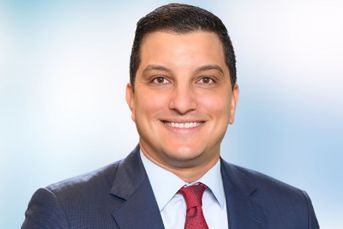Ex-Merrill Lynch broker pleads guilty to $8.7 million bank fraud
The 25-year veteran of the firm concocted false account statements to establish multi-million dollar lines of credit at two banks.
A veteran Merrill Lynch broker based in St. Paul, Minn., pleaded guilty to two counts of bank fraud at the end of last month for his part in an elaborate, long-running scheme that bilked two banks out of $8.7 million.
The broker, Jeffrey Kluge, a 25-year veteran of Merrill Lynch, concocted false Merrill Lynch account statements as part of the scheme to pledge phony collateral to the banks to establish multi-million dollar lines of credit, according to the plea agreement, which was filed with U.S. district court in Minnesota on March 29.
In addition, he also created a fictitious Internet domain name, www.mymerrillonline.com, that he used to create a phony email account, [email protected], from which he sent the falsified Merrill Lynch account statements to one of the banks, Platinum Bank. Mr. Kluge also created a fictitious identity of a purported Merrill Lynch employee, which he used in the emails with the bank, according to the plea agreement.
An attorney for Mr. Kluge, Steven Wolter, did not return a call for comment.
A Merrill Lynch broker who worked with Mr. Kluge, Jeffrey Rathmanner, has also left the firm, said company spokesman Bill Halldin. He would not comment about Mr. Rathmanner or Mr. Kluge any further, only adding that Merrill Lynch cooperates fully with law enforcement in such matters.
Mr. Rathmanner, who could not be reached for comment, had been a Merrill Lynch adviser for 21 years.
Mr. Kluge’s scheme started in 2001 and ran through last November, according to the court documents. He left Merrill Lynch in early November, and then Merrill Lynch reported he was a defendant in two Minnesota state court proceedings alleging breach of contract, fraud and claim and delivery, an allegation that enables one person to get back personal property taken unlawfully, accoring to his BrokerCheck profile.
“How did he get away with this for so long, and how did Merrill miss it?” said Danny Sarch, an industry recruiter, who added that Merrill was well known for having systems and procedures to prevent such fraud.
In April 2001, Mr. Kluge obtained a line of credit for $150,000 with Alliance Bank, a Minnesota commercial bank, telling the bank he held shares in municipal bond funds sufficient to serve as collateral, according to the plea agreement. He provided falsified account statements to substantiate the purported municipal bond holdings. The false account statements to Alliance Bank hid the fact that Mr. Kluge had already pledged the assets in the Merrill Lynch accounts for loans he had obtained from the firm.
By November, the outstanding balance on the line of credit was nearly $6 million.
In May 2007, Mr. Kluge obtained a $1 million line of credit from Platinum Bank, a Minnesota commercial bank. He used the same scheme as he did with Alliance Bank, pledging assets as collateral for loans that he had already used as collateral with Merrill Lynch and concealing that information from Platinum Bank. By November, that line of credit had a balance of $2.7 million, according to the plea.
The Financial Industry Regulatory Authority Inc. suspended Mr. Kluge last month.
Learn more about reprints and licensing for this article.








